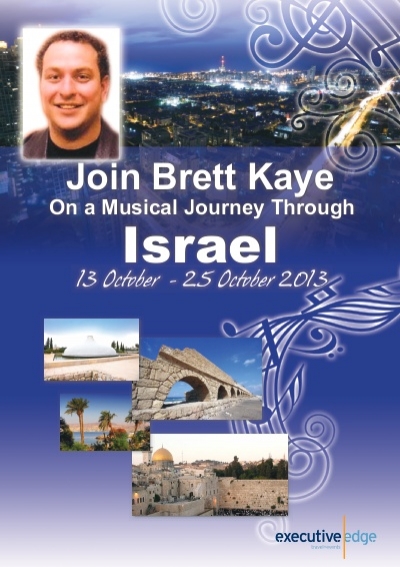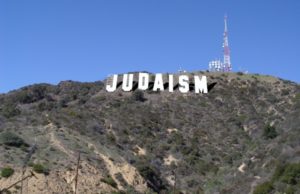The Jewish War on White Australia: The Anti-Defamation Commission and “Click Against Hate,” Part 3 of 4

EXCERPT 3: “I was brought up in a racist country”
Brett Kaye: So somebody asked the question of whether I was brought up in a racist household. The answer is no. But I was brought up in a racist country.
Child: What country’s that?
Brett Kaye: I grew up in South Africa, and let me tell you how it is racist. When I was your age …, I grew up in a political system that was called this…
Child: Apartheid? …
Brett Kaye: You remember me from last year. So, apartheid, made up of two words in a language called Afrikaans which is kinda like Dutch, means separate-ness. And what apartheid meant, realistically, was because I’m a white fella, life for me was good. A-OK. It meant I would live in the best areas of the city, it meant I could go to the beach (other people couldn’t), it meant people who were white went to white schools, Indians went to Indian schools, blacks went to black schools. Whites lived in black… in white neighborhoods, Indians in Indian neighborhoods, blacks in black neighborhoods. When I was at the park there was a park bench that said [banging the table] “White People Only.” Public transport? There was a bus just for white people, a bus just for Indian people, and a bus just for black people.
Child: Isn’t Indian black?
Brett Kaye: Nup. They were considered to be three separate classifications, Hospitals for white people, hospitals just for Indian people, hospitals just for black people. Black people and White people were not allowed to get married, were not allowed to live in the same house. … What it meant was that white kids and black kids and Indian ones would never ever spend time together because they weren’t allowed to be in the same areas. How do you think a White kid your age, a black kid your age would have felt about white people. Think about it. How do you think black kids who lived two hours out, who lived in houses with no electricity, no running water, no power, made their houses out of whatever materials they could find around? How would that black kid feel about white kids?
Child: Spoilt or jealous?
Brett Kaye: That they were spoilt, that they were jealous, and what does jealousy lead to?
Child: Hate?
Brett Kaye: Hate. There was a lot of hate. What do you think a white kid might have felt about a black kid? Yeah…
Child: Maybe they thought that it was unfair and feel sorry.
Brett Kaye: Maybe. Sorry for them. What do you think maybe if I said to my parents “I want to go hang out two hours away in this neighborhood?” What do you think my parents might have said to me?
Child: No
Brett Kaye: Why?
Child: Because they’re a black person?
Brett Kaye: So they wouldn’t have wanted me to hang out with a black kid because it wasn’t the right thing to do. Hang out with black kids. So there was a lot of racial hatred happening.
Kaye gives the misleading impression that White South Africans simply stole all of the housing, electricity, running water and other infrastructure that existed in South Africa and selfishly hoarded it for themselves, rather than being responsible for the creation of these things which never previously existed in southern Africa. For Kaye, apartheid South Africa was “racist” because “Black and White people were not allowed to get married.” Somehow, the prohibition of marriage between Jews and non-Jews in Israel (which is subject to a two-year prison term), the walls of separation between Palestinians and Israelis on the West Bank, and the different legal treatment forPalestinians and Israelis don’t render that state “racist,” but is an indispensable part of the Jewish people’s right to “self-determination.”
Perhaps White parents would be reluctant to let their children play in Black South African neighborhoods because these are some of the most dangerous places on the face of the Earth, with horrifying levels of violent crime. Of course, the question presents itself as to why Kaye, who grew up in a South Africa supposedly wracked with “racial hatred,” now lives in Australia. He was ostensibly one of the many thousands of Jews who quickly fled the “rainbow nation” after the end of White role (for which the organized Jewish community and a great many individual Jews fought unceasingly), doubtless in response to the tsunami of violent crime and social dysfunction that now grips that failed state. Unlike the many poor Whites who remain, Kaye had the wealth and connections to flee the wreckage for new host.

The vibrant new post-racist South Africa
It’s interesting that Kaye, a zealous proponent of “diversity” and “difference,” in escaping from the disaster zone of post-apartheid South Africa, fled to a Whiter (i.e., less dysfunctional) nation. This has not, however, prevented him from throwing himself into pro-Jewish and anti-White activism in his adopted country. Historian Suzanne Rutland has noted how South African Jews “arrived [in Australia] with a strong sense of Jewish identification and a very low intermarriage rate” and that “many are still coming, largely because of the high level of crime and a sense of insecurity.”[1]
EXCERPT 4: “My reality was different”
Brett Kaye: Let me tell you how my reality was different. So the people who remember me from ******* from last year might remember my religion. Do you remember what my religion is?
Child: Jewish?
Brett Kaye: Jewish. Correct. Now that’s important for this discussion for no other reason than because the school that I went to was a Jewish school and the school made a decision that anybody who wanted to come to the school was allowed to. And those people who could afford to — anybody who could pay extra on top of school fees — that could then fund those kids who wanted to come to the school but couldn’t afford to, like most of them black kids. So I grew up with kids of all different religions and all different races and all different nationalities in my classroom. When I finished school at the end of Year 12 lots of the kids who were in my class were Muslim, Christian, and of course lots of Jews. So I was lucky in that sense. Why do tell that story? Because we learn hatred when we are young. We also learn tolerance when we are young. [inaudible] And all of those different layers make the people that we are, and ultimately the people that we become. So I wanted to tell that story because when I see people still today I see people’s color because that’s the way I was brought up. But I learnt to appreciate people’s differences and to value them and that, I think to me, makes, makes life exciting. Difference, difference makes life exciting. We’ve got to celebrate difference.
Setting aside Kaye’s dubious claim that “lots” of non-Jewish children attended Jewish schools in apartheid South Africa, if children are indeed “lucky” to grow up in a context of racial and religious diversity, why does Israel maintain segregated schools, and why does Kaye not denounce this actually existing (as opposed to South Africa’s now historical) arrangement? If it’s imperative that children learn to appreciate, value and celebrate “difference” because it “makes life exciting,” why does the organization he represents (the ADC) have an unshakable commitment to the preservation of Israel as a “Jewish state”? Why no denunciation of Israel for failing to celebrate difference by blocking all Syrian and other non-Jewish refugees, who would, according to Kaye’s weasel words, only make life in Israel more “exciting”? Instead of condemning “the Jewish state” for implementing its own version of apartheid, and its absolute failure to “celebrate” difference, Kaye is quite content, in his spare time, to lead groups of tourists on “A Musical Journey Through Israel.”

EXCERPT 5: “But you don’t look like a Jew”
Brett Kaye: So as a definition we’ve got here: stereotypes are generalized or ready-made ideas of how persons or members of a group look or act — I know all about those people because I’ve heard about them or read about them, who I might never have met. Yet when I go to some schools, I would say half the schools I go to, and I tell them that I’m Jewish, most of the kids for me for them I’m the first Jewish person that they’ve ever met. So last week, for example, I was in ******** Secondary College and out of about eight groups of kids that I saw everybody but one said I was the first Jewish kid person that they had ever met. And when I tell them that I’m Jewish, the first thing is like, they be like, in shock and then after a while when they’re confident enough to discuss it with me (this was a bunch of Year 9 kids), [coughs] so I said to them ‘Why are you so shocked?’ and eventually, after a while, they go ‘You don’t look like a Jew.’
Brett Kaye actually does look and sound like a Jew
And I said to them ‘Well what does a Jew look like?’ And they were like a bit nervous and embarrassed, and stuff like that, and they said ‘Well you don’t sound like a Jew.’ I said well what does a Jew sound like? And they said ‘Well you don’t speak Jewish.’ I said yeah because there is no such language called Jewish. Um, there are some Jews who speak Hebrew and who live in Israel, but I speak English because I grew up in South Africa, now I live in Australia. Hebrew’s not my language. English is my language. So stereotypes are very interesting. Yes sir?
Child: Like so if you ask someone like, say those kids that didn’t know what a Jew was and you’re like, you’re not a Jew but you ask them what’s a Jew and they know that some people maybe say people who you know have all the curls on their head and…
Brett Kaye: The stereotypical Jewish look yeah with the black hat, the curls and the long black coat like you see maybe in a bookstore or in the movies, whereas most Jews aren’t dressed like that, or live like that. Interesting. Okay. Right. A few words. I’m going to spend a long time because I think it’s too late in the day. The first word is defamation. Right, defamation. The verb for defamation is defame, I defame someone. …
Brett Kaye: And you know sometimes … paparazzis get sued for defamation. Paparazzi are the press that keep taking photos of people because sometimes they might publish something, and even what they publish lowers a person’s reputation… Nowadays, if I want to defame someone what do I do? I could just get into my Instagram and send a quick post, get on my Twitter and do a quick Tweet, get on to my Facebook and send a quick message, and all of a sudden, update my status with thousands of people who, all of a sudden, see what I’ve had to say about someone. Defamation is so easy today. Remember when I said at the beginning of the session we were going to talk about the Internet and its dangers, we’re going to talk about why people hate, and then we’re going to talk about how people who hate get access to the Internet? Well here we go. These are examples. Defamation: lowering someone’s reputation. The next word: incitement. In-cite-ment. What does that mean? I’m gonna tell you an example. I’ve heard that across the road down the street there’s a new family that’s moved in from Syria, they’re refugees, I don’t want them living in my neighborhood. So, after school I’m gonna go when it gets dark, I’m gonna get some spray-paint and write on their walls “go home to where you came from.” I want you guys to come and do that with me. That is incitement. Tell me…
Child: Getting someone to do something bad
Brett Kaye: That’s exactly what it is. Incitement: influencing others to do the wrong thing.
Child: Could that also be peer pressure?
Brett Kaye: Yeah. Absolutely it is. If I influence other people by putting pressure on them to do something wrong, that is incitement. If I post a racist meme, because I don’t like a group of people, and other people see that meme and they start to feel bad about that group of people too, that is incitement. Incitement to hate. Trying to make other people hate people because I do too. And there’s so much of it. You guys have seen it. You guys look on your [inaudible] or your Facebook or whatever it is you’re on and you have seen racist memes and cartoons and trolls writing the most terrible, terrible things. You see it all the time. But we’ve got to click against it. We’ve got to click against the hate. Report it. Yes?
Interestingly, it’s never “hate” or “defamation” when a Jewish-controlled Hollywood is attacking “rednecks,” or “white trash,” or “Euro-trash,” or “dumb blonds” or preachers or Germans. But it suddenly becomes hate and defamation when people make factual pointed criticisms of Jews or other non-Whites. In fact, Hollywood subjects White people to an endless barrage of insults where White women are routinely depicted as stupid, brainless sluts, and White men are depicted as weak, wimpy, foolish and useless. The blonde male as arch villain is a longstanding Hollywood trope. Ruthless, avaricious bankers are always depicted as sociopathic WASPs rather than as the Jews who actually dominate the banking and finance industries. Unappealing Jews or Blacks are cast as leading men and the love interests of attractive White women, regardless of how improbable this is in the real world.

Because Blacks and Whites (except in marginal cases) do not naturally mix this has to be propagandized. So the message from the Jews who run Hollywood to White women is to go mate with Blacks because they are cool, noble, athletic, powerful, and sexually superior. All these memes are continuously put out the Jews of Hollywood to persuade White women to do what they would not do naturally. This psychological warfare through the construction of culture continuously chips away at the margins of White society and over time has an erosive effect — it erodes the stable homogenous, White bulk of the population. It systematically attacks White heterosexual normativity. Through their control of the mainstream media and entertainment industries, the anti-White agenda of a tiny Jewish minority has become the mass culture of the contemporary West. In this culture there are no taboos about attacking, insulting and defaming White people.
[1] Suzanne Rutland, The Jews in Australia (Melbourne: Cambridge University Press, 2005), 135.





Comments are closed.